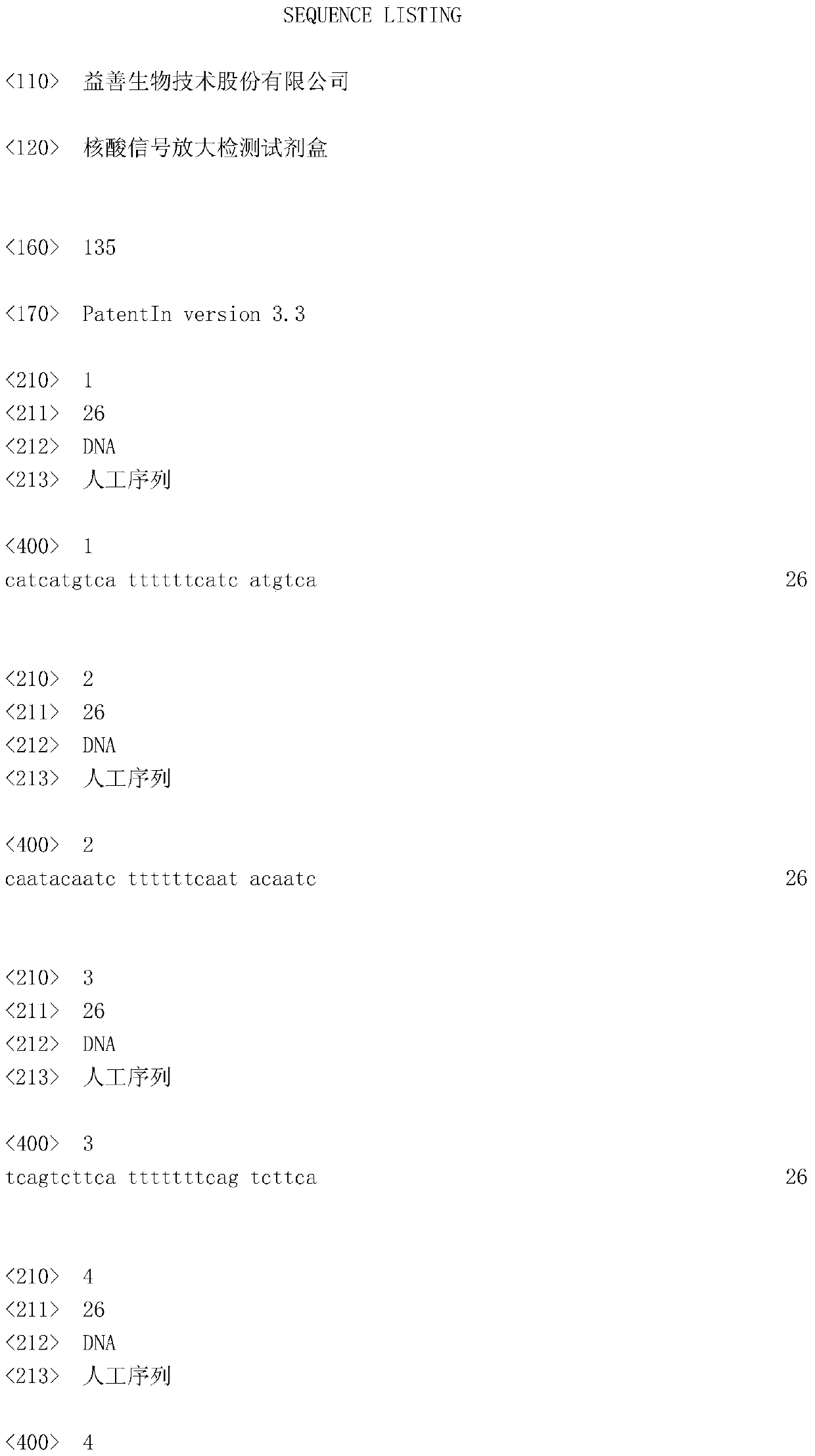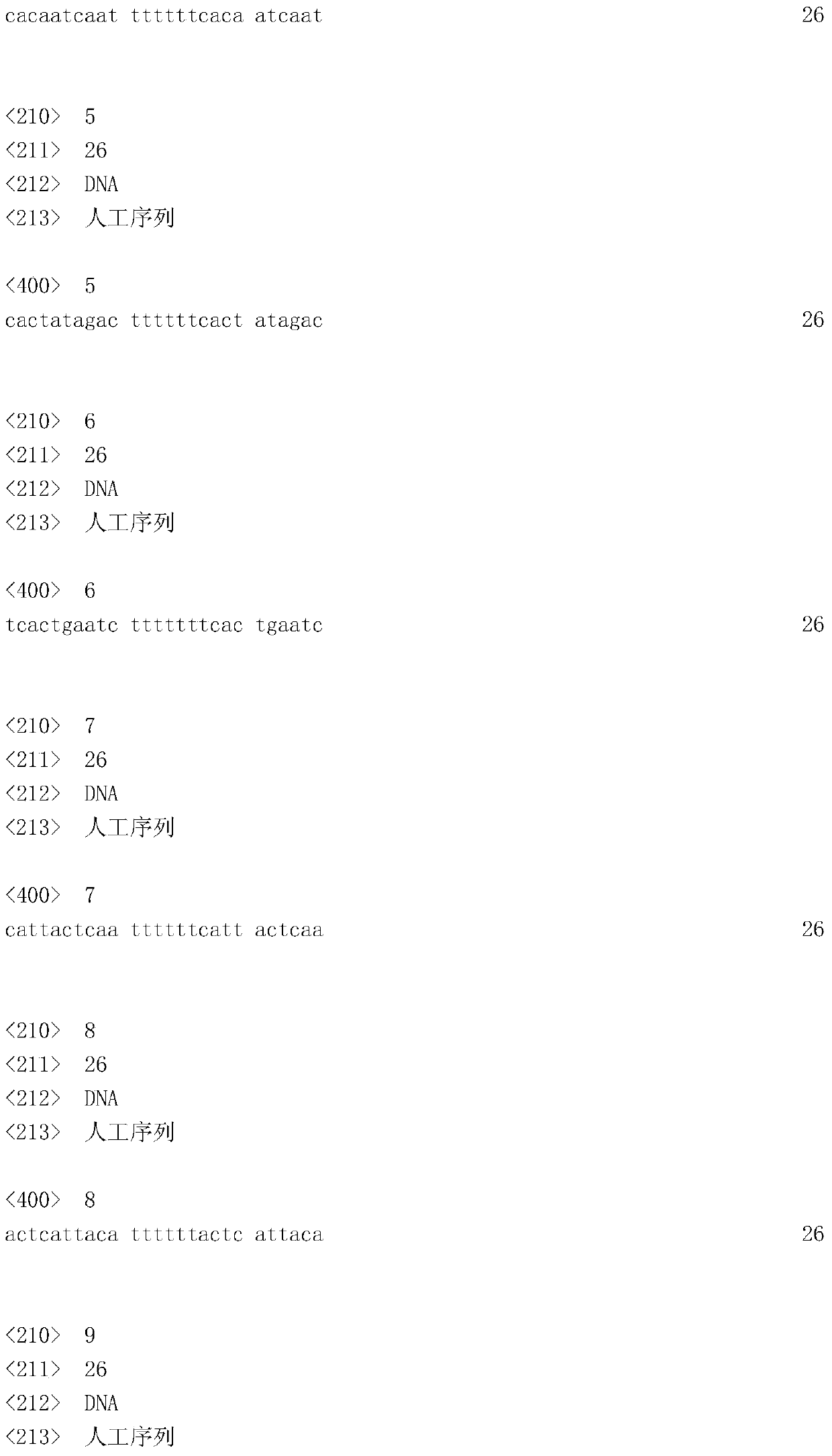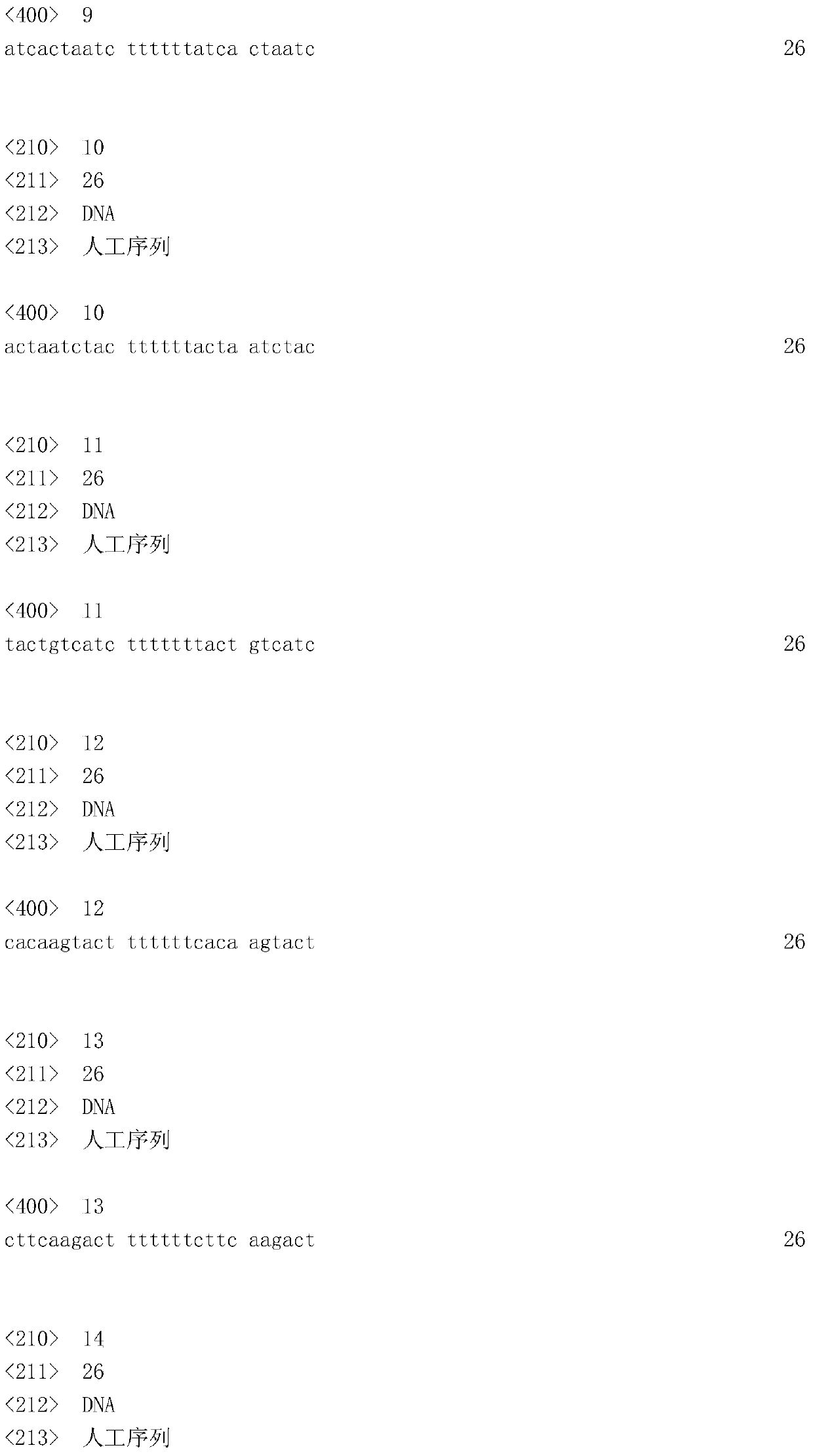Nucleic acid signal amplification detection kit
A detection kit and signal amplification technology, applied in the field of molecular biology, can solve problems such as unreliable detection, and achieve the effects of avoiding false positives, improving sensitivity, and high signal-to-noise ratio
- Summary
- Abstract
- Description
- Claims
- Application Information
AI Technical Summary
Problems solved by technology
Method used
Image
Examples
Embodiment 1
[0040] In this example, a signal amplification detection system with high sensitivity is designed, and the signal amplification components of the first-stage signal amplification probe, the second-stage signal amplification probe, the third-stage signal amplification probe and the capture probe are described in detail. .
[0041] 1) Primary signal amplification probe
[0042] The signal amplification component includes one or more primary signal amplification probes, and each primary signal amplification probe is sequenced from the 5' end to the 3' end: the P4 sequence, the spacer arm sequence, and the target to be detected. Nucleic acid-bound P3 sequence, the P3 sequence realizes the cascade amplification of the target signal by binding to the capture probe.
[0043] The signal amplification probes designed in the present invention, except for the situation that the reverse complementation of the specific probes defined below is completely matched, the P3, P4, P5, P6, P7, P8...
Embodiment 2
[0071] Embodiment 2 A kind of detection kit for detecting nucleic acid
[0072]The invention provides a nucleic acid detection kit, which can detect the mRNA expression levels of target genes EGFR, KIT, B2M, etc., specifically:
[0073] 1) Capture probe
[0074] Capture probes are designed for the mRNAs of target genes such as EGFR, KIT, B2M, etc., the capture probes are connected to the target gene mRNA and the primary signal amplification probe, and the base sequence of each capture probe is from the 5' end to the 3' end. The sequence is as follows: a specific sequence P1, a spacer arm sequence capable of complementary pairing with the target gene mRNA to be detected, a P2 sequence capable of complementary pairing with a primary signal amplification probe P3 sequence, and the P3 sequence contains one or more P2 sequences. The base sequence of the reverse complement of the sequence;
[0075] In this example, each marker gene is designed with 5 capture probes, the P2 sequenc...
Embodiment 3
[0086] Example 3 Using the kit in Example 2 to detect samples
[0087] In this example, the kit of Example 2 will be used to detect samples from different cancer cells, as shown in the table below. Those skilled in the art can obtain relevant cell lines in existing products according to the cell line names. In this example, the cell preservation solution of each cancer cell line was uniform, and the same volume of cell preservation solution was respectively taken as the detection sample, which was used for the following experiments.
[0088] sample number cancer cell line name 1~5 lung cancer NCI-H1975 6~10 prostate cancer PC3 11~15 stomach cancer KtaoIII 16~20 breast cancer MCF-7
[0089] The formulations of the various solutions are as follows:
[0090]
[0091] The signal amplification probe mixture in this example uses all the probes in the corresponding list in Example 2.
[0092] 1. Sample pretreatment, filter cancer...
PUM
 Login to View More
Login to View More Abstract
Description
Claims
Application Information
 Login to View More
Login to View More - R&D
- Intellectual Property
- Life Sciences
- Materials
- Tech Scout
- Unparalleled Data Quality
- Higher Quality Content
- 60% Fewer Hallucinations
Browse by: Latest US Patents, China's latest patents, Technical Efficacy Thesaurus, Application Domain, Technology Topic, Popular Technical Reports.
© 2025 PatSnap. All rights reserved.Legal|Privacy policy|Modern Slavery Act Transparency Statement|Sitemap|About US| Contact US: help@patsnap.com



